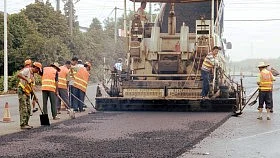On November 27, 2021, the Rotary Club of Bombay (RCB) inaugurated its integrated rural development project in the hamlets of Nilmati, Dandwal and Chinchutara that comprise the Nilmati-Dandwal Gram Panchayat in the Palghar District, bordering Nashik.
Talking about the series of the novel project, Shernaz Vakil, President RCB said, “With this, the total cumulative impact of the interventions in Palghar by the RCB is 745 homes in 9 villages, impacting the lives of 4,492 rural Indians. Land irrigated is 160 acres, land brought under cultivation 349 acres, 6,000 tree saplings have been planted, and 13,500 litres of pure drinking water have been made available daily.”
“In a year when every part of our country faced a tragedy of epic proportions, surrounded by sickness, death and financial and physical dips, the Rotary Club of Bombay, along with Chirag Rural Development Foundation, decided to undertake an Integrated Rural Development Project at the Dandwal-Nilmati Gram Panchayat in Maharashtra. Similar past interventions by the Rotary had shown reduced migration and self-sufficiency at the village level, sheltering the villagers from the havoc played by the pandemic,” added Vakil.
Pratibha Pai, Founder of Chirag said, “Nilmati – Dandwal Gram Panchayat is the last Gram Panchayat of Mokhada in Palghar, on the border of Nashik district. The close proximity to Nashik city has only increased the migration figures of these tribals. There are three hamlets within this Gram Panchayat that were in urgent need of intervention: Dandwal, Nilmati, and Chinchutara. The Gram Panchayat has a dam behind two hamlets, and a flowing river behind the third one, which has ample water. However, due to the lack of lift irrigation facilities, the villages face extreme water scarcity. The people of these villages trek for hours to secure two pots of water. Moreover, they have no livelihood opportunities in the village, as water scarcity does not allow them to take up any second crop forcing migration come October each year. The lack of continuous income leads to extreme poverty, malnutrition, reduced literacy and an overall bleak future with large numbers migrating.”
The primary objectives of the project were to bring about a sustainable change in the five main parameters of living conditions of the villagers, namely home, social, health, education and livelihood. In order to fulfil the project objectives the villages were provided with solar home lighting solutions, street electrification, solar powered lift irrigation for water for domestic use, drinking and agricultural use, water filtration for clean drinking water, and solar electrification of the schools.

The project has made a significant impact on the lives of the villagers and a total of 341 households received access to continuous and affordable electricity, 6,500 litres of drinking water is now made available per day, 30-35 litres of water for domestic use has been made available per day per person, and 2,142 villagers are now safer post sunset, solar powered lift irrigation has ensured that 65 acres of land will be brought under year-long agricultural cultivation with irrigation, while an additional 120 acres will be brought under horticulture cultivation, bringing a total of 185 acres of land under cultivation. With clean water, there will be improved health indicators, leading consequently to better productivity, increased and more engaged school attendance, and an improved quality of life.
There will also be a significant impact on the environment and carbon neutralisation as the villagers move from kerosene to solar lights, with the added benefit of cost saving. Activating year-long agricultural practice will not only ensure that wastelands turn green, but also add valuable nutrition to the villagers' diet. Continuous income will ensure mitigated migration, with children being allowed to continue their education.






